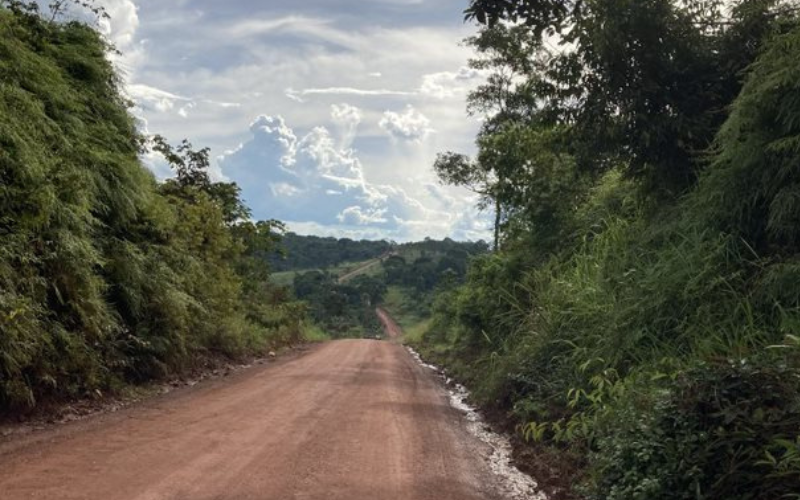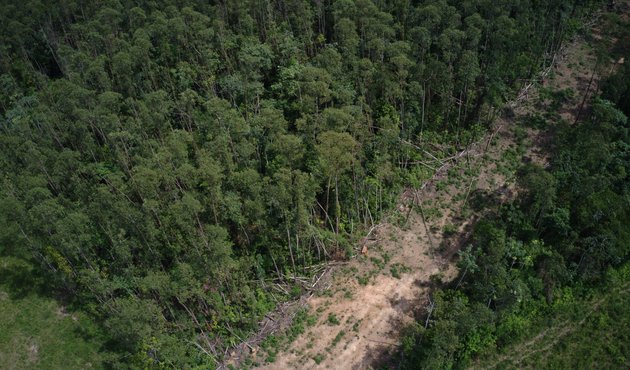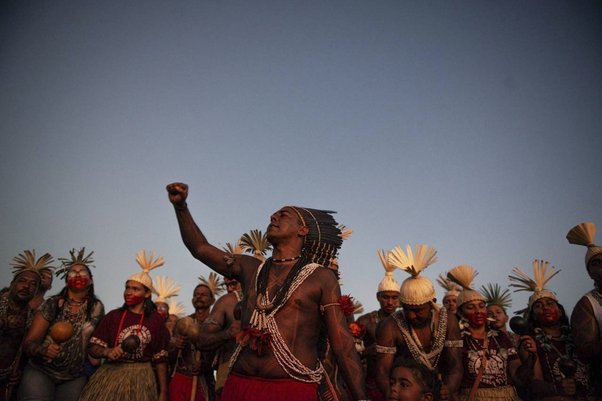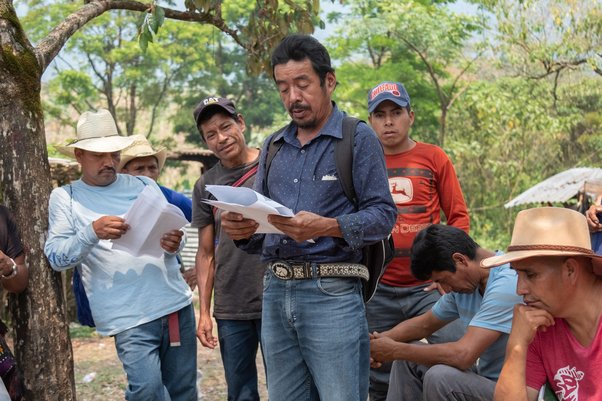Exhaustion, relief, fear, hope. When I ask the people I meet here in Brazil how they feel about the new Lula government, the response is rarely simple and often full of emotion.
I am here on a trip to deepen our partnerships with organisations working on deforestation and those on the frontline who are most affected by it – the people living in the forest whose land is regularly invaded and stolen for financial gain.
For four years, people working on human rights and environmental issues in Brazil have had a government that has openly supported illegal mining in Indigenous lands, tabled legislation to reduce environmental protections and legitimize stolen land, and fed culture wars not dissimilar to those being experienced in the US and Europe.
Their experience has been exhausting and bruising.
But now, key ministries and agencies disbanded or hollowed out during the last government are under the leadership of politicians with a track record of positive environmental and human rights impact. Under the last Lula government, deforestation reduced by 70%. Some of the politicians responsible for those successes are back at the helm.
While there is relief, no-one can quite believe that the challenges of the last four years are really over. Not least because the election was won with the slimmest of majorities. So almost by definition, there are many, many people who hope that the last government, and all that went with it, is not over. And that constituency is organised and powerful. It stretches from Congress right to state level to include those currently occupying key local Government and mayoral positions. And this is why along with relief, there is also fear.
The people I spoke to working on environmental and social issues talked about a political fight back - about how those with little regard for the environment or human rights are re-grouping and organising. One campaigner talked about how, for the first time, she feared for her own safety.
In the state of Pará, where the cattle industry is associated with devastating deforestation and land grabbing, a former cabinet Minister has been visiting public meetings packed with cattle ranchers. Top of the agenda at a recent meeting was the ranchers’ case for denying land long assigned for river peoples who were brutally evicted to make room for a massive dam project. I heard how the ranchers are now framing themselves as the ‘victims of victims’. They want that land. Any progress the Lula government wants to make on Indigenous questions looks likely to be fought tooth and nail.

View along the Trans-Amazonian highway, Pará State, Brazil. Credit Veronica Oakeshott
The ranchers of course are simply responding to a global economic market that seems to care little about preserving forests and nature or about who it harms in its wake. They’re at one end of a long chain of business interests that starts with investors in London, New York, China, and European capitals, about which we have often written.
With global market demand and an economy reliant on commodity exports, entrenched poverty and a slim majority, it's perhaps not surprising that Lula is giving the beef industry and other agribusiness lobbyists one foot in his camp. Even so, the fact that his recent delegation to China of nearly 250 people included around 10 members from JBS - the world’s biggest meat producer and a company with long-standing links deforestation in its supply chains - is cause for particular concern.
This is a President who has made the forests one of his key international calling cards. He travelled to the COP27 climate conference as President-elect to speak on the world stage, has since met with Biden to talk about deforestation, and is hoping to host a regional Latin American conference on protecting the Amazon this summer. The China trip delegation suggests a worrying gap between his international rhetoric and the reality of the national political space he has for action. He will need to be bold to secure his global environmental legacy.
So where is the hope? Well, whilst the new President may not be fixing the damage of the past few years as fast as many would like, there is at least breathing space from the constant flood of new abuses to fight. Space to strategise and grow.
Many organisations recognise the system of economic incentives and challenges and - like Global Witness - are making the decision to focus on finance. The prospect of partnerships on this issue is exciting for us. And many organisations I met, like the Amazon-based journalism organisation, Sumaúma, or the Parákanã Indigenous Association, are thinking ahead, planning to train a new generation of activists, young women and men from the forest, who can make their case direct to the world. They know that the environment issue is not going away, with global interest only growing - and that they live at the very heart of it.
Brazil has now submitted its candidacy to host the 2025 global climate COP conference – COP30. They have put forward the Pará state capital, Belem - a state home to 24 million cows as well as the richest, most diverse forest on earth, as their proposed host city. In the years ahead, the case for protecting the Amazon from international irresponsible business and finance will be almost impossible to ignore.



